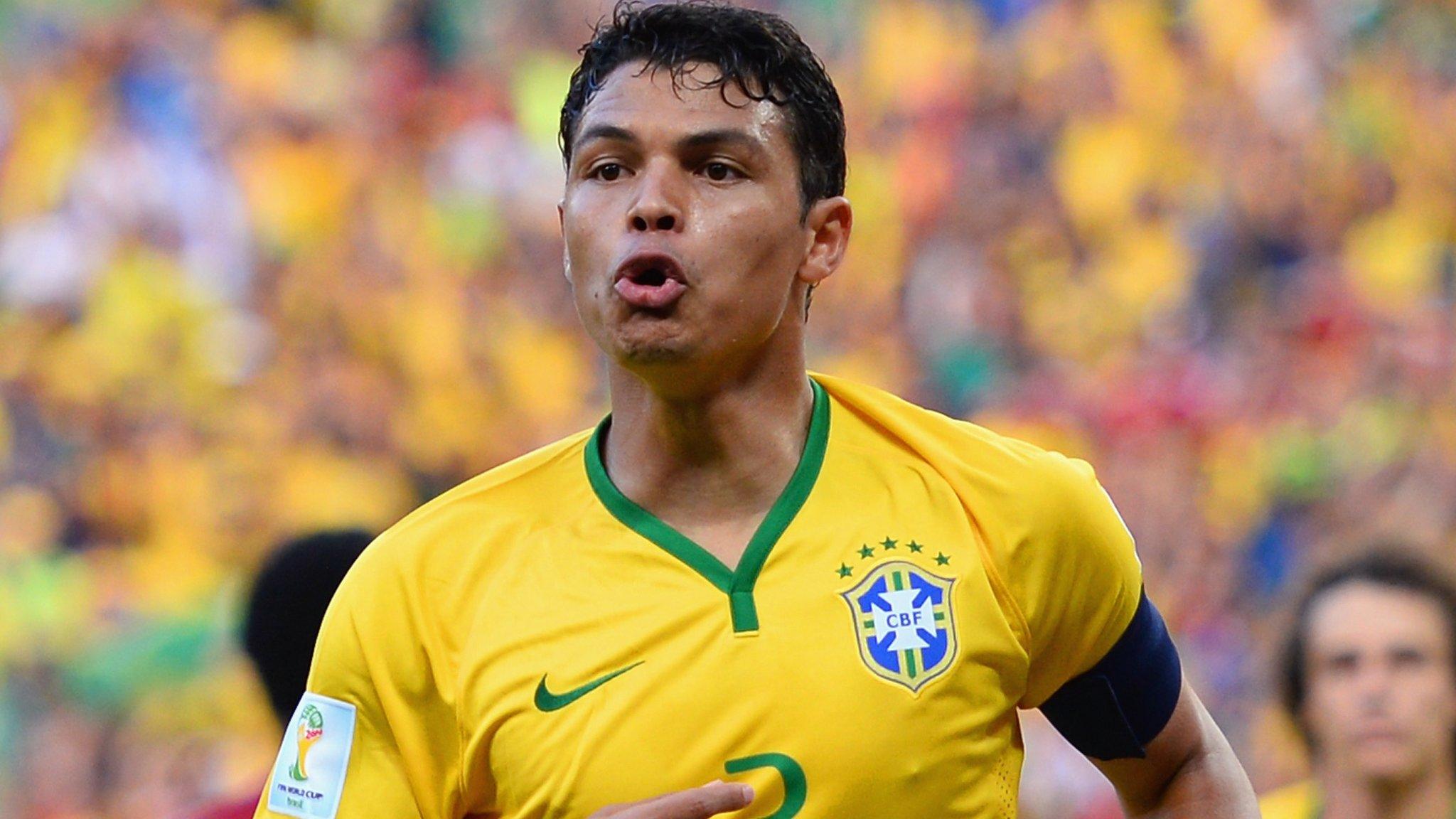World Cup 2014: Neymar is out, so how can Brazil shine?
- Published
Brazil put four past Cameroon to go top of Group A
Brazil v Germany |
|---|
Venue: Belo Horizonte. Date: 8 July |
Coverage: Live on BBC One, BBC Radio 5 live and online text commentary, 21:00 BST |
As Brazil coach Luiz Felipe Scolari seeks to rally his Neymar-less troops for Tuesday's semi-final against Germany, there is one moment that he surely must be reviewing and relishing - Brazil's final goal in the 4-1 win over Cameroon.
The move began with a Cameroon free-kick on the edge of their own penalty area.
It was taken quickly, but Oscar snapped in with a tackle. He played in to centre forward Fred, who gave a first time back-to-goal return ball. Oscar played a delightful lay-off into the path of a Fernandinho burst, and the Manchester City midfielder scored with a neat cross finish.
Archive: Zuniga challenge ends Neymar's World Cup
True, it came against a weak opponent at a stage in the game when Cameroon would probably have blown over if left in a room with a strong breeze.
Nonetheless, it was a fine piece of football which suddenly takes on extra relevance - especially because it came at a moment when Neymar was no longer on the field.
The boy prince, so sadly absent from the rest of the tournament, had already been substituted.
In the absence of their star, Brazil came up with this moment against Cameroon which, instead of depending on individual inspiration, was based on the collective.
As a team, Brazil pressed high, won the ball, moved it quickly and opened up the space for a shot.
And it was a collective context that emphasised the importance of Oscar as the man to link the team together.
For most of this World Cup, the Chelsea attacker has been banished to the flanks - an assistant to the full-back, as some local journalists have dubbed his role.
Analysis - chief football writer Phil McNulty |
|---|
"The tournament-ending injury to Neymar has driven at the very heart of Brazil's hopes of winning the World Cup. Scolari must hope his absence, along with that of suspended captain Thiago Silva, does not have an impact on the spirit and momentum that has been slowly building both among the team and the mass support willing them on towards the final." |
The balance of the side looked a little better in an imposing first half against Colombia, with the entry of Maicon at right-back in place of Daniel Alves.
Where the Barcelona man loves to cut inside, Roma's Maicon keeps the pitch wide with his bursts down the flank, making it easier for Oscar to drift closer to his team-mates.
This will surely continue on Tuesday, when Oscar will be expected to dictate the rhythm of the team and keep them knitted together.
But who will play around him?
As well as the absence of Neymar, there is another enforced change, with captain Thiago Silva suspended for the game against Germany.
David Luiz will take over and will also move across to play as the right-sided centre back, with Dante slotting in to his left.
The patched up nature of the heart of the defence makes it all but inevitable that Luiz Gustavo will return after suspension to operate in the holding role.
With the Germans capable of passing at speed on the edge of the area, Scolari will want to ensure that the space in front of his centre backs is well protected.
If there would seem to be little doubt about the defensive unit, what might be the forward options?
4-3-3
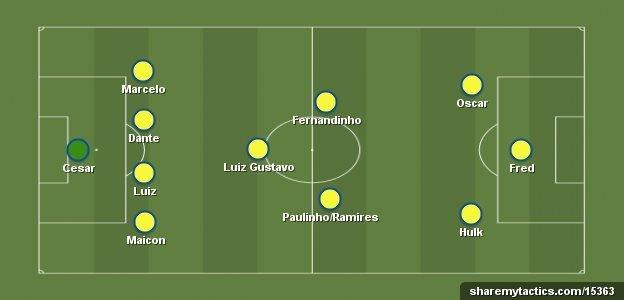
More protection behind the attacking full-backs with this formation
This was the formation Scolari looked at after the Confederations Cup as a variation on his standard 4-2-3-1, the idea being that there would be more protection in the vulnerable space behind the attacking full-backs.
It is the more cautious option available to Brazil's coach, and therefore might be considered adequate for a big match against dangerous opponents when the team's main attacking star is missing.
4-2-3-1
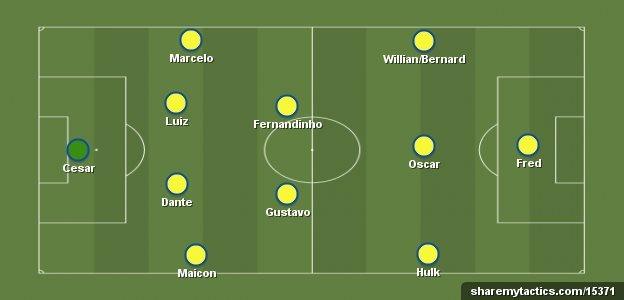
Scolari's standard 4-2-3-1 system
This has been Scolari's base system for over a year now, since the pieces started to come together at the start of last June with the entry of Gustavo.
Maintaining the formation would be a gesture of faith in his players and in the depth of his squad.
Willian has been seen as the first reserve for either Neymar or Oscar. Indeed, before the tournament there was a media push, external for him to be in the side in place of his Chelsea team-mate.
The impression is that he has lost ground over the course of the last few weeks.
'Players have a point to prove' - Mark Lawrenson |
|---|
"I initially thought Brazil were in big trouble once we found out that Neymar's injury had ruled him out of the tournament, to go with Thiago Silva's suspension for this game. But now I have got a funny feeling that Brazil might win, partly because I think the whole nation no longer expects them to. The players who come in for that duo will have a point to prove." |
He was not especially impressive when brought on at half time in the final warm-up match against Serbia, and looked nervy when introduced in the second-round game against Chile - an impression confirmed when he rolled his shot wide in the shootout.
But in terms of his capacity to operate all across the attacking line, he is the closest Brazil have to Neymar.
Bernard would be a bold option. The little winger won over Scolari in training sessions during last year's Confederations Cup, when the coach praised "the joy in his legs.", external
He can operate in reduced space on either flank and has the advantage of being a local Belo Horizonte lad.
He might be best used as an impact substitute. In the Confederations Cup he came off the bench in the semi-final, also in Belo Horizonte, and the crowd responded by stepping up the noise.
The surprise up front
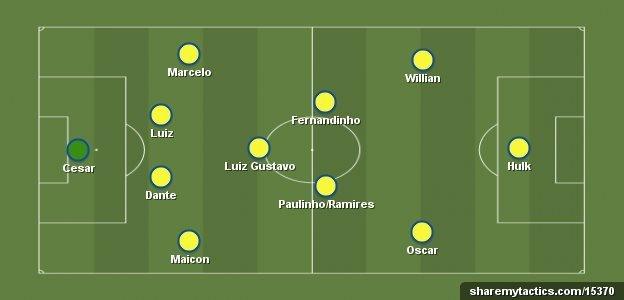
Would a surprise up front work when the stakes are so high?
In the last couple of days Scolari has gone out of his way to praise the performance of centre forward Fred against Colombia, describing him as 'participative'.
Might there be an element of kidology in this?
A key part of the justification for the presence of Fred was the feeling that Neymar was happier playing behind a back-to-goal centre forward who would both open up space for him and give the option of exchanging passes on the edge of the area.
This concern, of course, no longer applies.
Against a defence that uses a high line and lacks pace, a case could be made for pushing Hulk further forward.
It would be a surprise - Scolari loves his target men, and the restoration of such a player was the first thing that happened when he took charge.
But he is an emotive figure who is capable of springing a surprise. Will he do it now when the stakes are so high?
For the best of BBC Sport's in-depth content and analysis, go to our features and video page.
- Published7 July 2014
- Published6 July 2014
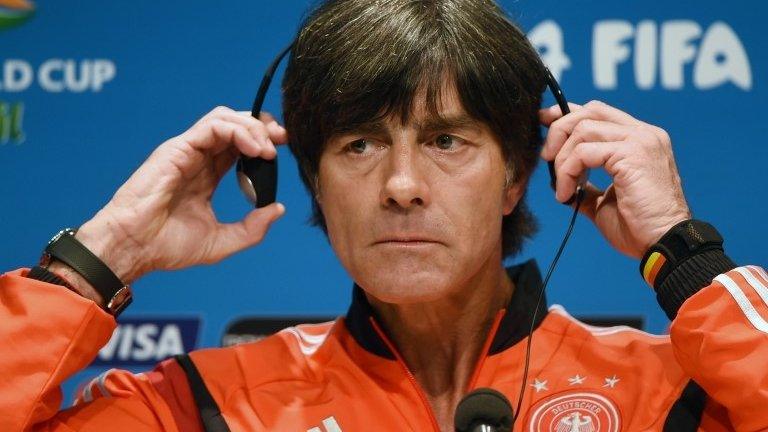
- Published7 July 2014
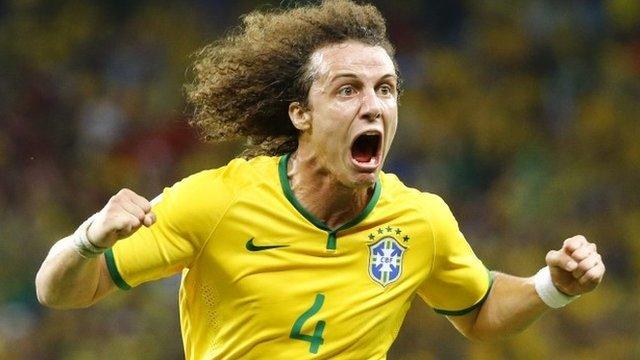
- Published5 July 2014
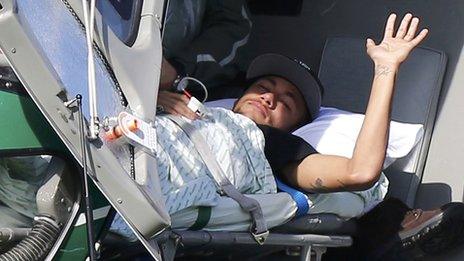
- Published7 July 2014
